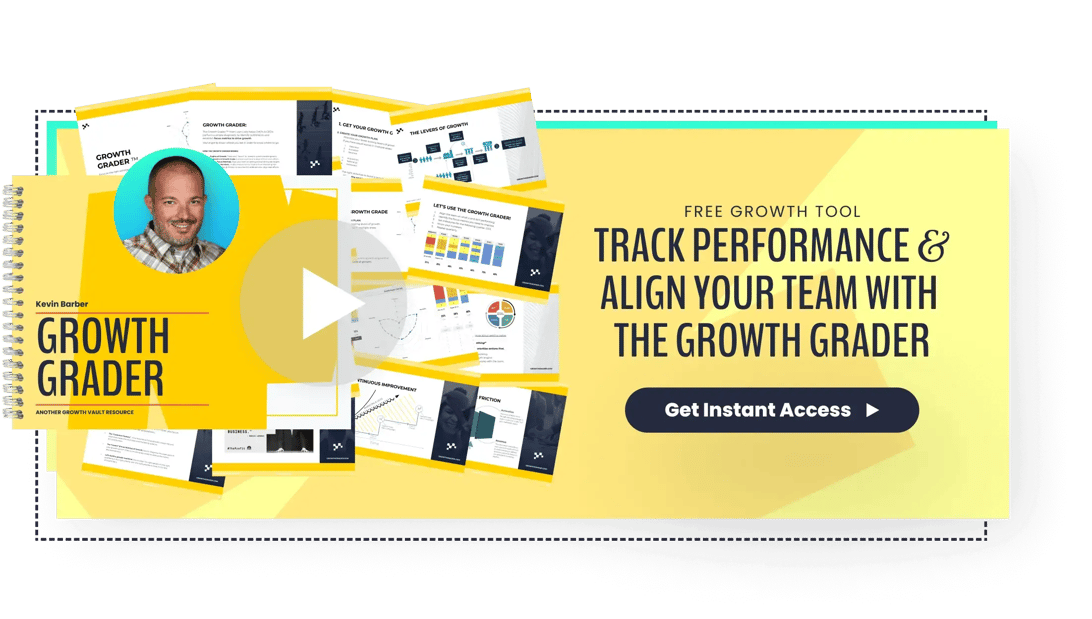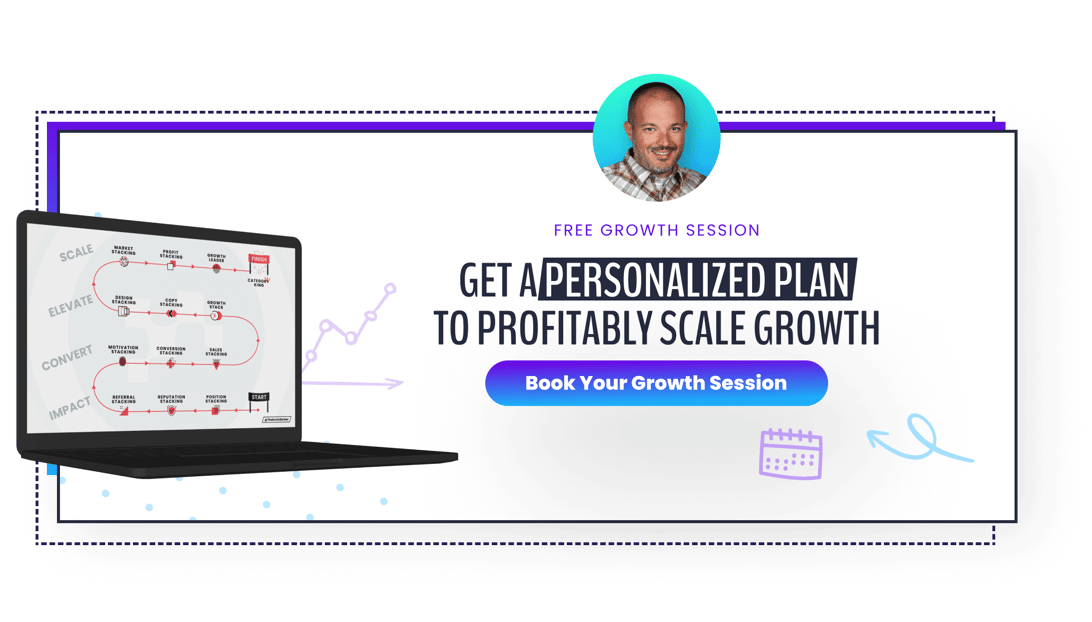Yet marketing is up there with the most critical parts of your business. Unless customers know about your business, how can they find your company, let alone purchase your products or services?
That said, we understand why marketing isn't treated with importance. Many SaaS startups struggle to find the time or resources to step up their marketing efforts or instead plow money into paid advertising. However, many customers would rather find out about your product through blogs, social media, and other articles. Why? Because they need to know, like, and trust you before they purchase.
It might feel like a long game, but effective marketing can make or break your business and determine your long-term success. This blog post will give you six bulletproof strategies to ensure you implement a growth marketing plan guaranteed to bring results.
What is Growth Marketing for Startups?
For many Startups, the name of the game is growth. A great product and a killer go-to-market strategy set the tone for success. But once you've launched your product, what then? How will you scale quickly?
If you're lucky enough to have investment dollars and a big budget, you could hedge your bets on paid ads and forget organic marketing, but you risk burning through cash and seeing little marketing return on investment (ROI).
Instead, you could place your bets on growth marketing. Growth marketing is a data-driven, full-funnel approach to marketing. It's a methodology instead of a set of tactics. It's setting goals and being experimental. It is, by nature, well-suited to Startup businesses trying to break the mold and bring something different to the table.
Whether you're a bootstrapped startup or have a solid budget, Lean Labs have a stellar record for delivering profitable, scalable growth.
We know that growth shifts don't happen overnight or come from promoting lead magnets that don't work. Find out more about what we do by booking a Growth Mapping Session. Until then, here are six bulletproof strategies you can steal today.
VIDEO TRAINING
Get The Growth Marketing Playbook.
Learn to plan, budget, and accelerate growth with our exclusive video series. You’ll discover:
- The 5 phases of profitable growth
- 12 core assets all high-growth companies have
- Difference between mediocre marketing and meteoric campaigns
Thanks for submitting the form!
We'll review the information you've submitted and respond to you just as soon as possible.
1. Create Content for Awareness
Content is king. I'm sure you've heard that before. And, to an extent, it's true. But content for the sake of content is not the right play. You'll already know your target audience if your go-to-market strategy is thoroughly researched and planned. Knowing your audience makes producing content so much easier. You should never run out of ideas!
Whether they realize it or not, customers aren't buying a product. They're buying a solution to their problem. Before they choose a solution, they need to find a solution. They need answers to their questions and somebody they can trust.
To drive the right kind of traffic, produce personalized content. Why? Because content needs to be helpful and relevant.
- 80 percent of consumers are more likely to buy from a company that provides a tailored experience
- 70% of consumers say that how well a company understands their individual needs impacts their loyalty
Take Plum as an example. A fintech startup, Plum automatically takes money from your bank account and puts it into saving pots. You can decide which pots the money goes into and how frequently, and because the algorithm knows what you can afford, you're never caught short. For people who struggle to save or just forget, Plum answers all their prayers.
So what? Plum regularly posts content around topics like "Solutions if you're struggling to save money" and "How to build good money habits." They answer questions, solve problems, and build trust.
You're not trying to reach everybody. Lead generation is a vanity metric if it doesn't lead to conversions. The growth impact will be higher if you convert qualified leads who converted on personalized messaging/content.
Related: SaaS Content Writing: How To Attract, Engage, And Delight Your Customers
2. Create a Stunning and Effective Website
You might have heard this before, but it's worth emphasizing: your website is your best salesperson. Especially true in the Startup and B2B world, creating a great user experience on your website is a marketing strategy in itself!
Online presence is crucial for startups, and a website that looks professional and is well-thought-out represents your business and products effectively. Add an intuitive website that answers your potential customer's questions and directs them to engage with your product? Now you have a valuable marketing tool.
There are many ways to create a stunning website and guidelines to follow, but one common misconception to rid yourself of is that a high-converting website needs to cost the earth. It doesn't.
Most importantly, your website needs to convert. Sprocket Rocket is a modular website builder. You don't need to know how to code, and individuals or teams can create a stunning website using customizable drag-and-drop modules–not elements–but whole modules. Simply swap out images and text, stack your modules, and within minutes, you'll have a website ready to go!
Pro tip: Your website's message should be clear, concise, and include a value proposition and compelling CTAs to drive acquisition.
3. Automate Marketing
Marketing automation is powerful. Don't just think of it as a way to make your team more productive. Yes, automation increases operational efficiency. If it's possible to program software that performs a task as well as you do it manually, you release the time demand for that task. Yay!
But the real power of automation is how it relates to your customers and the buyer journey. You can automate lead nurturing with follow-up emails when a customer takes the desired action. You can also label contacts according to their buyer journey stage. For example, mark a contact as an MQL (marketing qualified lead) and assign leads to drip campaigns and sales team members.
Other ways to use automation include:
- Segmentation for personalization
- Targeted workflows
- Social media scheduling
- Customer feedback surveys
Suppose you can tie automation back to the customer journey and how it helps build relationships. In that case, you'll use it to facilitate the buyer journey from stranger to customer by engaging, educating, and prompting customers toward the buying decision.
Don't forget about analytics! HubSpot, for example, provides a centralized lead database, SEO planning tools, landing pages, and campaign features to help you make the most of marketing automation.
4. Team up With Sales
If you're unfamiliar with growth marketing, you might think that marketing stops once an MQL becomes an SQL (sales qualified lead). That's not the case. And when marketing and sales teams live separately, you get silos.
In this scenario, marketing teams pat themselves on the back for vanity metrics around awareness, and sales teams blame marketing teams for poor leads.
Traditionally, sales walk customers through calls and provide all the support. In the modern marketing world, using a full-funnel approach brings marketing and sales teams together. Marketing and sales can create a strategy that nudges a potential customer through the entire buying cycle, from awareness to finalizing the sale.
With constant communication, sales teams can provide insight into what a customer is experiencing. Marketers can then highlight those experiences and show how your company solves them. This communication ensures tour customers get a consistent experience and builds trust, making a sale more likely.
Pro tip: Marketers can sit in on calls to field customer support questions and start building FAQs and marketing materials that answer common objections and fears.
5. Retention, Retention, Retention
Here are three statistics to ensure you take this section seriously and implement customer retention strategies immediately:
Imagine the number of customers you could lose if you don't treat them well and you don't try to sell to existing customers? So much money left on the table! For a startup, it's tantamount to a crime.
OK, that might be a tad dramatic. But! Retention is a strategy that takes up little of your marketing budget yet provides a solid ROI. Repeat customers and return buyers make for loyal customers. You can lean on them for testimonials and referrals, and they make for compelling case studies.
Which retention strategies you use depend on your business, but some common strategies are:
- Personalize communication to reach customers with the proper messaging.
- Reward customers for loyalty.
- Add value to your customer's experiences with email marketing (updates, newsletters, educational pieces, personalized promotions).
- Giveaways and free trials to new products.
Look at your customers now and focus on creating the best experience to delight them and keep them coming back.
6. A System to Drive Referrals
To piggyback off the previous strategy, retaining customers makes it easier to ask for referrals. And that bit is significant–you have to ask for referrals–not just expect them to happen.
When you serve customers well and provide value, they want to tell their friends and peers. You'll be top-of-mind when one of their peers has a problem that your product can solve. The best way to ask for a referral is to figure out why your customers stay with you and what they love you for.
Next, provide happy customers with a simple way to share your business with their circle. A referral tracking system is the best way to create and track referrals. Prompt customers with surveys and other tools and provide rewards for successful referrals.
Growth Marketing for Startups: It's a Team Effort
Many strategies we've mentioned today link back to the Six Levers of Growth. Taking a full-funnel approach to marketing is an excellent play for Startups because it's scalable and trackable, and you don't need a big budget to get started.
Getting your strategy right the first time is crucial to growing quickly and effectively. At Lean Labs, we believe everything starts with strategy. To see how we can help you launch your business and focus on massive growth, book a Growth Mapping Session today!







